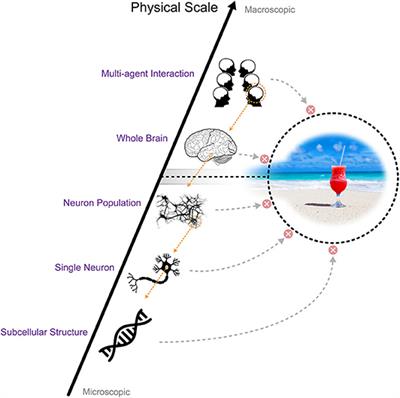Information Closure Theory of Consciousness
Information processing in neural systems can be described and analysed at multiple spatiotemporal scales.

Generally, information at lower levels is more fine-grained but can be coarse-grained at higher levels. However, only information processed at specific scales of coarse-graining appears to be available for conscious awareness. We do not have direct experience of information available at the scale of individual neurons, which is noisy and highly stochastic. Neither do we have experience of more macro-scale interactions, such as interpersonal communications. Neurophysiological evidence suggests that conscious experiences co-vary with information encoded in coarse-grained neural states such as the firing pattern of a population of neurons. In this article, we introduce a new informational theory of consciousness: Information Closure Theory of Consciousness (ICT). We hypothesise that conscious processes are processes which form non-trivial informational closure (NTIC) with respect to the environment at certain coarse-grained scales. This hypothesis implies that conscious experience is confined due to informational closure from conscious processing to other coarse-grained scales. ICT proposes new quantitative definitions of both conscious content and conscious level. With the parsimonious definitions and a hypothesise, ICT provides explanations and predictions of various phenomena associated with consciousness.
The implications of ICT naturally reconcile issues in many existing theories of consciousness and provides explanations for many of our intuitions about consciousness. Most importantly, ICT demonstrates that information can be the common language between consciousness and physical reality. .
Read the full article at the original website
References:
